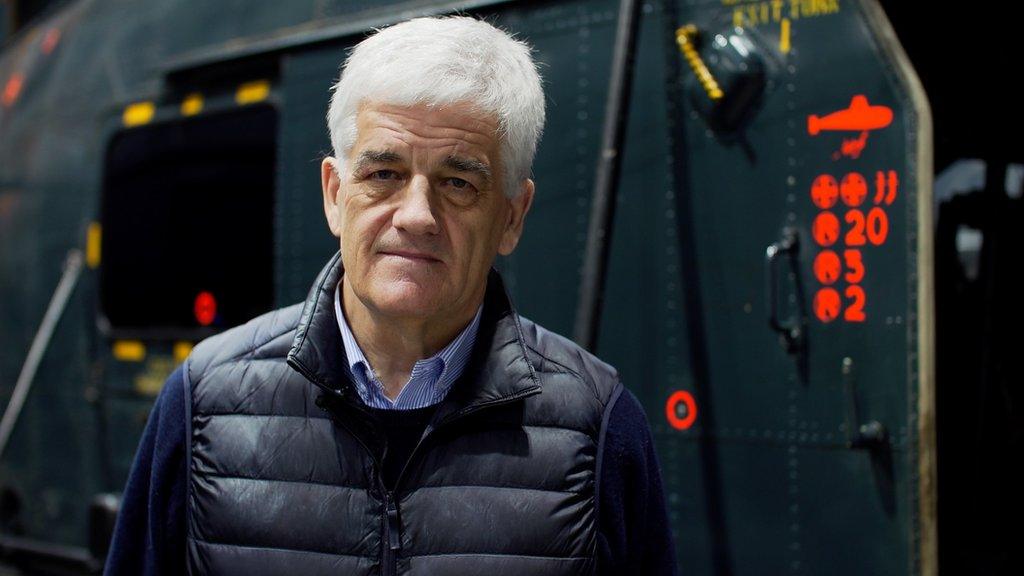Falklands battlefield survey helps former soldiers
- Published
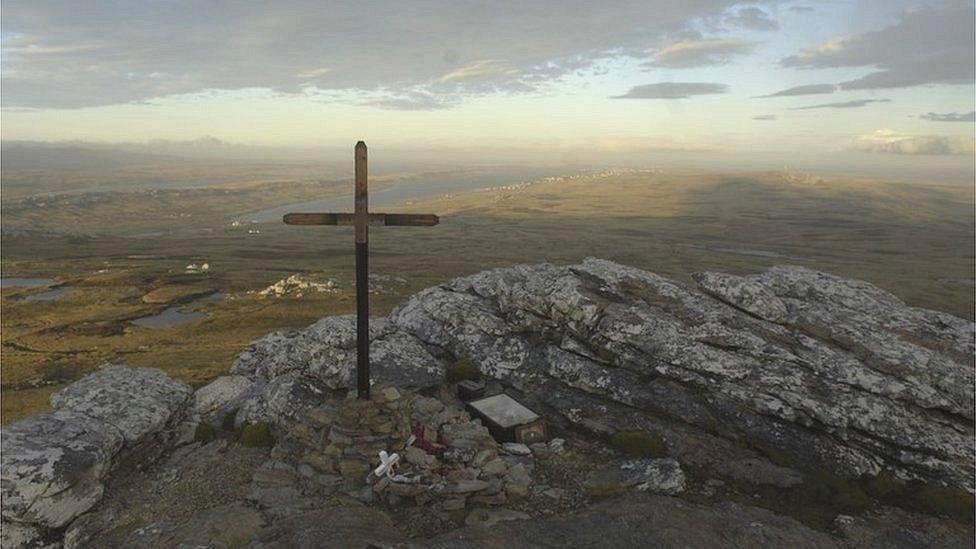
Mount Tumbledown, overlooking Port Stanley
War veterans and archaeologists are carrying out the first survey of battlefields on the Falklands.
The Falklands War Mapping Project will look at the character, location and condition of artefacts and structural features related to the events of 1982.
Academics from Oxford and Glasgow universities, along with two British Army veterans are behind the venture.
It is hoped it will have a positive impact on former soldiers who have post-traumatic stress disorder (PTSD).
The team is being assisted by Waterloo Uncovered, a charity which uses archaeology as therapy for trauma and injury.
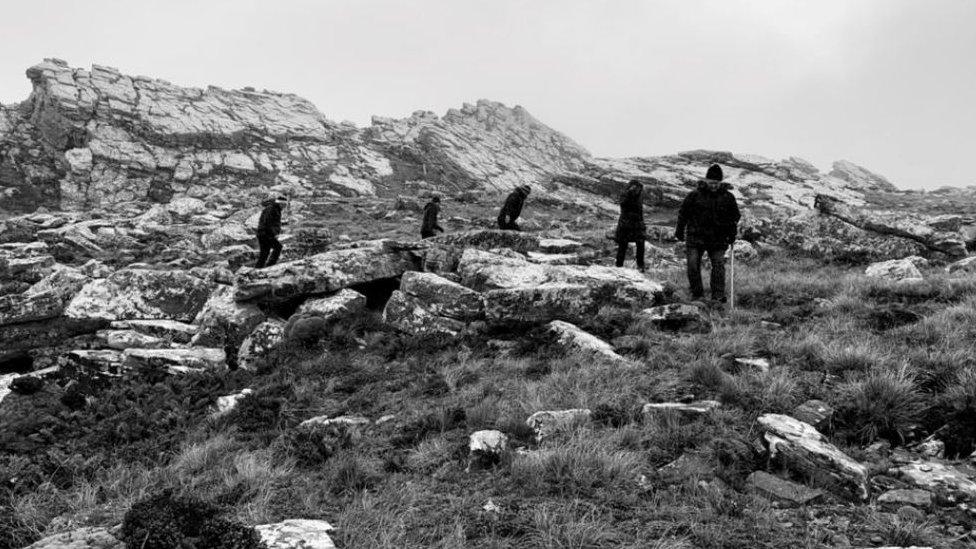
Academics from Oxford and Glasgow universities, along with two British Army veterans are behind the venture
The project is being led by Dr Timothy Clack of the University of Oxford and Professor Tony Pollard of the University of Glasgow, who said having veterans from 1982 join the team is "a huge privilege".
Two former soldiers, identified only as Jim and John, who both fought in the Battle of Mount Tumbledown are accompanying the archaeologists in a bid to improve their understanding of the landscape, finds and past events.
John is making his first visit to the Falklands since the conflict 40 years ago, while it is Jim's fifth time on the islands.
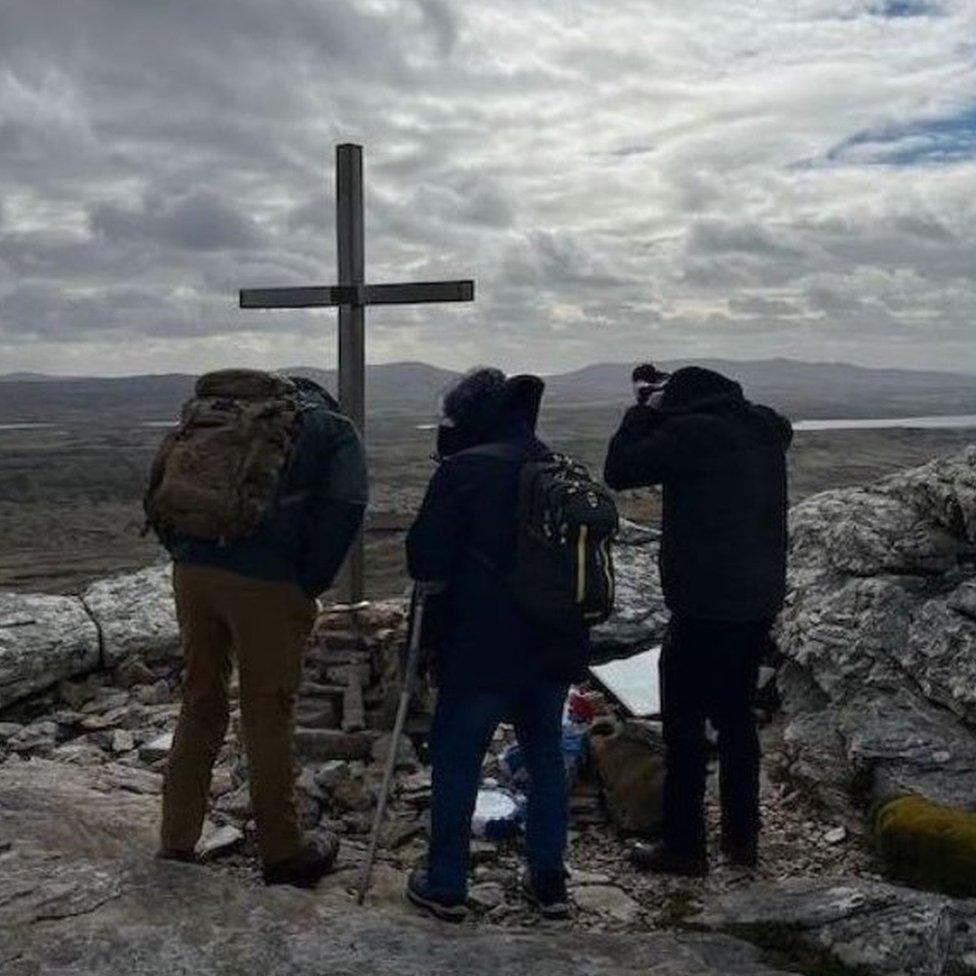
The team will look at the character, location and condition of artefacts and structural features related to the events of 1982
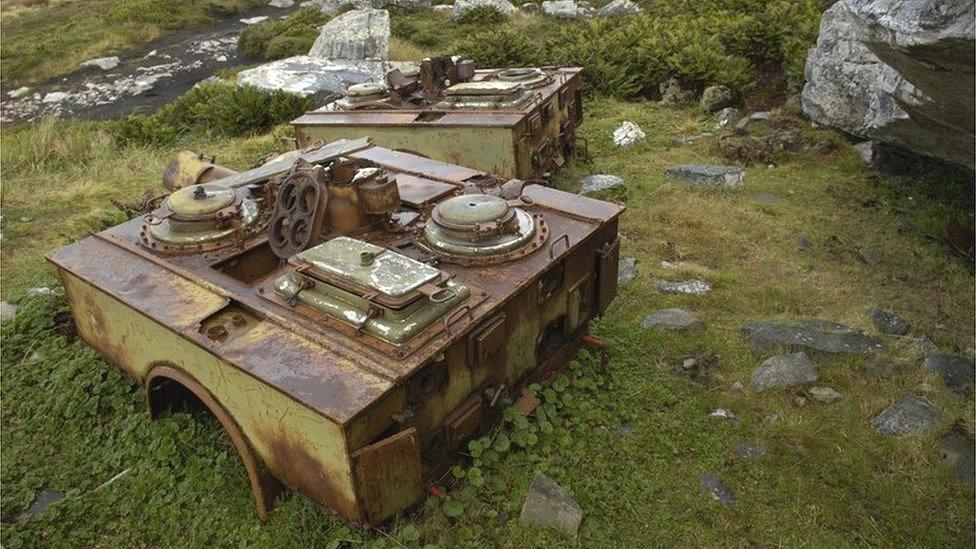
A rusting Argentine marine field kitchen is still perched in a sheltered spot on Mount Tumbledown
Professor Pollard said: "We are accompanied by two Mount Tumbledown veterans, to help them move on in their lives, and to start to record the physical reminders and memories of 1982 that are still there today but dwindling fast."
Prof Pollard added: "The scattered objects, aircraft wrecks, makeshift fortifications, and even shell holes from the Falklands War represent important elements of the cultural heritage of conflict."
Dr Clack, from Oxford University, said: "We intend to learn how battlefield materials can act as a primer for the recall of past events, how their meanings change over time, how they shape emotional states, and how people think conflict heritage should be protected."

Follow BBC South on Facebook, external, Twitter, external, or Instagram, external. Send your story ideas to south.newsonline@bbc.co.uk, external.
- Published5 April 2022
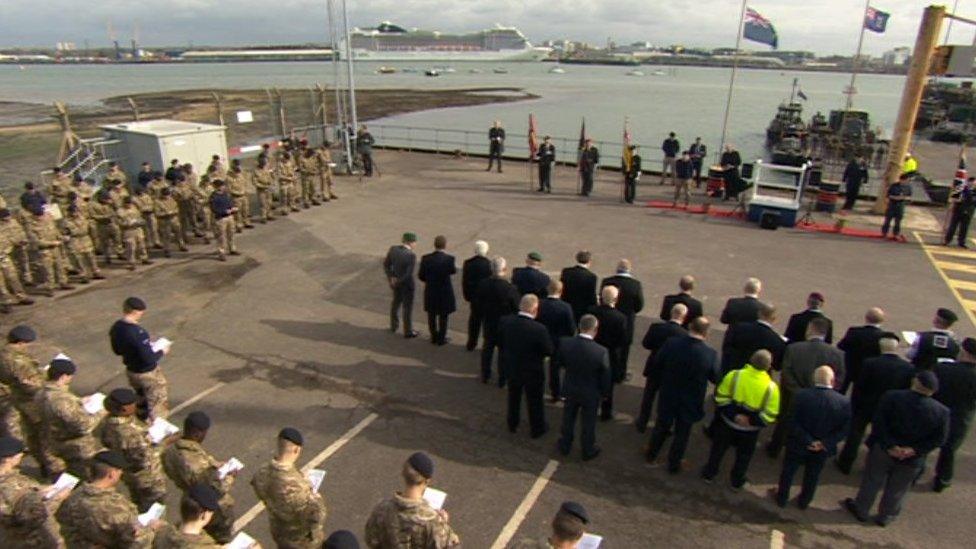
- Published4 April 2022
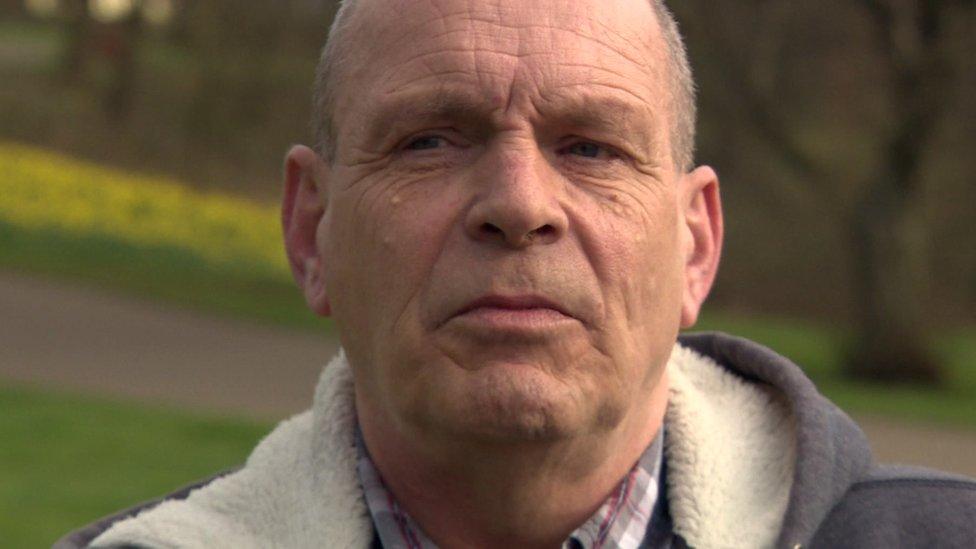
- Published6 April 2022
